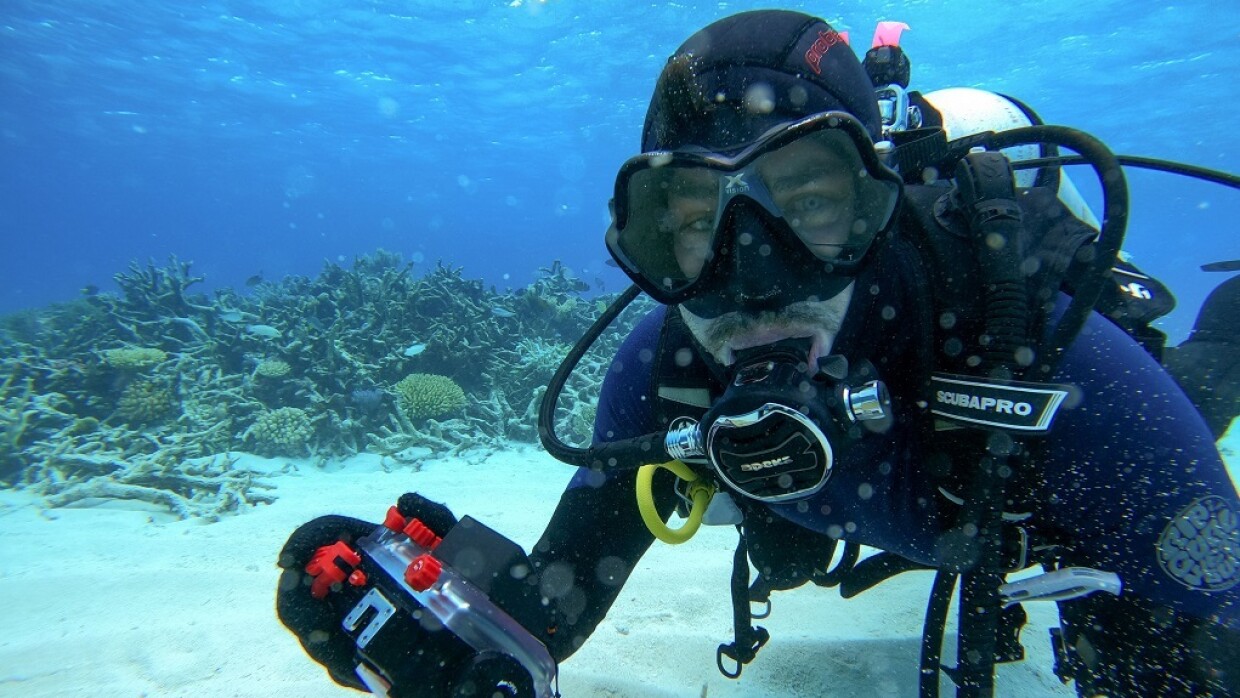Scientists across the Pacific have been working together to create a digital tool that uses Artificial Intelligence (AI), machine learning, and advanced data analytics to quickly extract and share insights based on coral reef data and images anywhere in the world. Coral reefs are one of the most diverse marine ecosystems, with a quarter of all marine species calling them home.
Traditionally, data and images captured of the reefs were manually analysed, and different countries had different methodologies of collecting data, which resulted in inconsistent data sets being collated, making it difficult to generate reports to maintain the sustainable use of marine eco-systems. Manual processes were time-consuming and lengthy, which impacted the efficiency of researchers with limited resources to process and analyse data. As a result, the scientific community spends large amounts of time processing data instead of innovating and creating solutions for the reefs.
Leveraging Amazon Web Services’ (AWS) expertise in AI and machine learning, AIMS launched ReefCloud earlier this year. ReefCloud is part of a collaboration with eight other institutes, including the Palau International Coral Reef Centre (PICRC), Queensland University of Technology, and Maldives Marine Research Institute.
Surfing democratised data to support global research innovation
The marine environment is vast and dynamic, and to derive meaningful insights, marine scientists require larger data sets than those that currently exists. AIMS’ sea water temperature logger data sets alone account for nearly a billion records, but there’s still a huge volume of information that is uncaptured. From fish population to coral bleaching, being able to capture, access, and quickly analyse such data sets will help marine scientists derive data-driven insights that contribute to innovation on solutions supporting coral reef sustainability in the future.
ReefCloud helps marine scientists and the wider coral reef community rapidly extract and share millions of data points from data and images of coral reefs anywhere in the world. This digital tool is already transforming coral reef monitoring and management, democratising otherwise siloed data sets – enabling the global coral reef community to collaborate in real-time.
“We are in a race against time – there is no undo or reset option for us to save the coral reefs. Once the window of opportunity is closed, there is no turning back,” said David Crossman, Product Manager, AIMS Data Systems Engineering team, Australian Institute of Marine Science. “The amount of data that we can access and can collect is vast and will reimagine how we approach our research. The challenge lies in understanding and turning the data into actionable insights – within a short time frame or in real time. Using AWS, we can now make sense of data sets in hours that previously would have taken our data teams months, enabling us to focus on what we do best.”
AIMS sought a platform that could deliver on three key requirements: simple to set up, user-friendly, and a high level of security. Security is especially crucial with data redundancy and the select data that users wanted to restrict access to. AIMS turned to AWS Managed Services, a set of services and tools that automate IT infrastructure management tasks for AWS workloads, to deliver a serverless platform. This had an immediate positive impact on performance – a data query for AIMS Reef weather stations which previously took 12 hours to produce an output, can now be processed within 12 minutes.
Insights-driven comeback for coral
ReefCloud is also using AWS to produce insights and make them widely available to help save the reefs. AIMS now has the capability to manage databases in the cloud, secure serverless functions, and access this data via a user-friendly platform. By standardising collected data, ReefCloud can analyse reef composition with up to 90% accuracy, and at speeds 700 times faster than manual assessment. This efficiency, including saving time on analysis, enables marine scientists to spend more time at sea, analysing the reefs and collecting more comprehensive data sets.
Through ReefCloud’s open-source database, valuable data and learnings are made available to other like-minded communities globally that are facing similar challenges. It also provides a valuable resource for organisations working in conservation and marine health that might not have the means to create one of their own.
The road to more resilient reefs
Routine monitoring of reefs is important to understand changes in condition. Continuing that effort with others around the world will ultimately lead to better sustainability outcomes. With the success of ReefCloud, AIMS is already looking toward the next frontiers.
AIMS is working with Aboriginal and Torres Strait Island Traditional Owner groups, sharing knowledge of coral reefs to preserve them for the future. Development of a new dashboard on ReefCloud is underway and AIMS hopes that this will create a bridge between science and traditional knowledge, which could unlock new and innovative solutions.
To further empower scientists with access to real-time applications and minimise latency, AIMS and AWS are now exploring the potential of deploying edge computing to manage reef data. When scientists are at sea, they have extremely limited, or non-existent, connectivity. Deploying AWS Snowball, a portable hardware device with storage and computing power, allows secure edge computing devices to be installed in places where network connectivity is inconsistent, like out at sea, helping AIMS overcome a key challenge in capturing and processing data.
“The Great Barrier Reef is one of Australia’s most loved and recognisable natural icons and it is encouraging that cloud technology and data analytics are supporting organisations like AIMS to help revitalise such an important ecosystem,” said Iain Rouse, Country Director, Australia, New Zealand, Public Sector, AWS. “We are delighted to see the positive impact ReefCloud has made in Australia and are committed to supporting AIMS and their mission to leverage ReefCloud and expand to the global research community to help sustain other coral reef environments around the world.”
Learn more about AIMS’ Reefcloud at https://www.aims.gov.au/research/technology/reefcloud. Interested in Amazon Web Services’ Managed Services? Understand how AWS can support your organisation at https://aws.amazon.com/managed-services/











